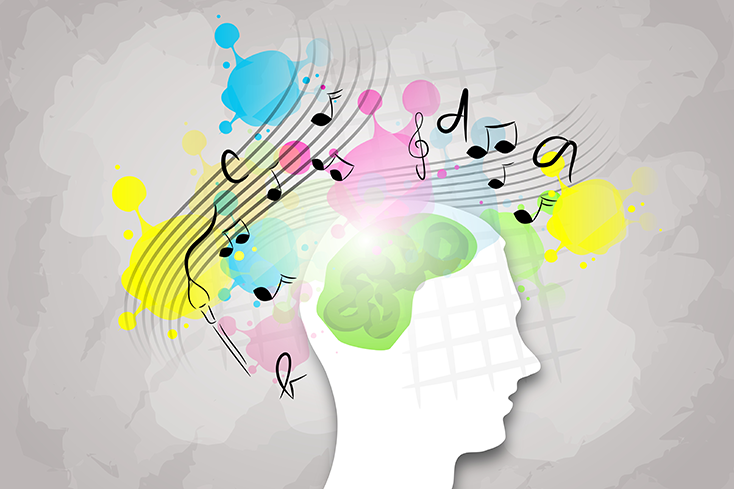The Life and Works of Nguyen Duy Tri
Nguyen Duy Tri was a renowned Vietnamese poet who left an indelible mark on the literary landscape of his country. Born in 1921 in Hanoi, Tri’s early life was heavily influenced by the tumultuous political climate of Vietnam during that time. Despite facing numerous challenges and hardships, he managed to find solace and expression through his poetry.
Tri’s works are characterized by their profound introspection and exploration of human emotions. His poems often delve into themes such as love, loss, and the transient nature of existence. Through his lyrical verses, he captures the essence of these universal experiences with remarkable depth and sensitivity.
Throughout his career, Tri received widespread recognition for his contributions to Vietnamese literature. He was awarded prestigious accolades including the Ho Chi Minh Prize for Literature and Arts in 1996. His poetry continues to resonate with readers today, serving as a testament to his enduring legacy as one of Vietnam’s greatest literary figures.
With each poem carefully crafted using vivid imagery and evocative language, Nguyen Duy Tri invites readers into a world where words transcend boundaries and touch upon profound truths about our shared humanity. His ability to capture complex emotions within concise lines is a testament to his poetic genius. As we explore further into Nguyen Duy Tri’s body of work, we uncover layers upon layers of meaning that continue to inspire contemporary poets around the world.
Exploring the Poetic Genius of Nguyen Duy Tri
Nguyen Duy Tri is widely regarded as one of the most brilliant poets in Vietnamese literature. His work is characterized by its profound insights, evocative imagery, and lyrical beauty. Through his poetry, Tri delves into the depths of human emotions and experiences, capturing the essence of life’s complexities with remarkable clarity.
One aspect that sets Nguyen Duy Tri apart as a poetic genius is his ability to seamlessly blend traditional Vietnamese poetic forms with modern sensibilities. He skillfully weaves together ancient techniques such as parallelism and tonal patterns with contemporary themes and language. This fusion creates a unique artistic voice that resonates deeply with readers across generations.
Another hallmark of Nguyen Duy Tri’s poetic genius lies in his masterful use of symbolism. Through carefully chosen metaphors and symbols, he explores universal themes such as love, loss, and longing. Each image he presents carries multiple layers of meaning, inviting readers to delve deeper into their own interpretations and reflections.
In addition to his technical prowess and symbolic depth, Nguyen Duy Tri’s poetry also reflects the historical context in which it was created. He lived during a time of great political turmoil in Vietnam, marked by war and social upheaval. This backdrop undoubtedly influenced his work, infusing it with a sense of urgency and resilience that resonates powerfully even today.
Through exploring the poetic genius of Nguyen Duy Tri, we gain insight into not only an individual artist but also the broader cultural landscape from which he emerged. His works continue to inspire countless readers around the world who are captivated by his ability to capture both the timeless truths of human existence and the specific nuances of Vietnamese history and culture through verse alone.
Connecting with Nguyen Duy Tri’s Literary Legacy
Nguyen Duy Tri’s literary legacy continues to captivate readers and scholars alike, as his works transcend time and language barriers. His profound understanding of the human condition is evident in every line of his poetry, leaving a lasting impact on those who engage with his words. Through his masterful use of imagery, symbolism, and metaphor, Nguyen Duy Tri invites readers into a world that is both familiar and enchanting.
One cannot help but be drawn to the themes explored in Nguyen Duy Tri’s poetry. From love and longing to war and loss, he delves deep into the complexities of life, offering profound insights that resonate with readers from all walks of life. His ability to evoke emotions through carefully chosen words is truly remarkable. Each poem becomes a vessel for introspection and self-discovery.
Furthermore, Nguyen Duy Tri’s work has not only influenced Vietnamese literature but has also left an indelible mark on contemporary poetry worldwide. His unique style challenges conventional norms while pushing boundaries in terms of form and structure. By experimenting with different poetic techniques, such as enjambment or unconventional rhyme schemes, he creates a rhythm that mirrors the ebb and flow of human existence.
Nguyen Duy Tri’s literary legacy stands as a testament to his brilliance as a poet. His ability to connect with readers on an emotional level transcends cultural barriers and reminds us of the universal power of art. As we delve deeper into his body of work, we are invited to explore our own humanity through the lens he provides—a lens that captures both beauty and pain in equal measure.
Unraveling the Themes in Nguyen Duy Tri’s Poetry
Nguyen Duy Tri’s poetry is a rich tapestry of themes that delve into the depths of human emotions and experiences. One prevalent theme in his work is love, which he explores with both passion and tenderness. Through vivid imagery and poignant language, Tri captures the complexities of romantic relationships, from the intoxicating euphoria of new love to the bittersweet ache of longing for a lost lover. His poems evoke a range of emotions in readers, inviting them to reflect on their own experiences with love and its transformative power.
Another recurring theme in Nguyen Duy Tri’s poetry is nature. He often uses natural elements as metaphors to convey deeper meanings and explore philosophical concepts. The beauty and tranquility of landscapes become symbols for introspection and self-discovery. In his works, nature serves as a mirror through which individuals can contemplate their place in the world, finding solace or enlightenment amidst its grandeur.
Tri also delves into themes related to social issues and historical events, reflecting his deep concern for humanity’s struggles. He addresses topics such as war, poverty, injustice, and oppression with an acute sensitivity that resonates with readers across generations. Through powerful imagery and thought-provoking narratives, he sheds light on these societal challenges while offering glimpses of hope or calls for change.
Nguyen Duy Tri’s poetry is an exploration of universal themes that touch upon the essence of what it means to be human. His ability to capture complex emotions through evocative language makes his work relatable yet profound. Whether exploring love or delving into social issues, Tri invites readers on a journey that not only unravels the themes within his poetry but also encourages introspection about our own lives and society at large.

A Glimpse into Nguyen Duy Tri’s Creative Process
Nguyen Duy Tri’s creative process is a fascinating journey into the mind of a poetic genius. His ability to craft powerful and evocative verses stems from his unique approach to writing. Rather than relying on strict rules or formulas, Tri allows his creativity to flow freely, often drawing inspiration from nature, personal experiences, and the cultural heritage of Vietnam.
One aspect that sets Nguyen Duy Tri apart is his keen observation skills. He has an uncanny ability to notice even the smallest details in his surroundings and translate them into vivid imagery within his poetry. Whether it be the delicate petals of a flower or the subtle change in color as day turns into night, Tri captures these moments with precision and grace. This attention to detail not only enriches his poems but also provides readers with a deeper connection to the world around them.
Another key element of Nguyen Duy Tri’s creative process is his relentless pursuit of authenticity. He believes that true poetry should reflect genuine emotions and experiences rather than conforming to societal expectations or trends. To achieve this, he delves deep into his own thoughts and feelings, often exploring complex themes such as love, loss, identity, and spirituality. By baring his soul through words on paper, Tri invites readers on an intimate journey through their own emotions and encourages self-reflection.
In essence, Nguyen Duy Tri’s creative process can be described as an organic exploration of life itself. Through careful observation and introspection, he weaves together words that resonate deeply with readers’ hearts and minds. His commitment to authenticity ensures that each poem carries a profound message while maintaining its aesthetic beauty. As we delve further into Nguyen Duy Tri’s works in this article series, we will uncover more layers of meaning behind each carefully crafted verse
The Influence of Nguyen Duy Tri on Vietnamese Literature
Nguyen Duy Tri’s influence on Vietnamese literature cannot be overstated. His innovative and experimental approach to poetry challenged traditional norms and paved the way for a new generation of writers to explore unconventional themes and forms. Through his works, he pushed the boundaries of language and expression, inspiring countless poets to break free from established conventions.
Tri’s impact on Vietnamese literature extends beyond his poetic style. He was also instrumental in fostering a sense of cultural identity among Vietnamese writers during a time when the country was undergoing significant political and social changes. His poems often touched upon themes of national pride, history, and patriotism, resonating deeply with readers who were grappling with their own sense of belonging in an ever-changing world.
Furthermore, Tri’s literary legacy lies not only in his own writings but also in his role as a mentor and teacher. He dedicated much of his life to nurturing young talents and encouraging them to find their unique voice within the realm of poetry. Many prominent Vietnamese poets credit Tri as their inspiration and guide, highlighting the profound impact he had on shaping contemporary Vietnamese literature.
Through his groundbreaking works, unwavering dedication to artistic exploration, and commitment to nurturing future generations of poets, Nguyen Duy Tri has left an indelible mark on Vietnamese literature that continues to resonate today. His influence can be seen not only in the works of those directly influenced by him but also in the broader evolution of Vietnam’s literary landscape as it embraces new perspectives and forms of expression.
Discovering the Symbolism in Nguyen Duy Tri’s Poems
Symbolism plays a significant role in Nguyen Duy Tri’s poems, adding depth and layers of meaning to his work. Through the use of symbols, Tri invites readers to explore complex themes and emotions that go beyond surface-level understanding. One example of symbolism in his poetry is the recurring image of birds, which often represents freedom and escape from societal constraints. By using this symbol, Tri conveys his desire for liberation and the longing for a life unconstrained by external forces.
Another powerful symbol present in Nguyen Duy Tri’s poems is water. Water can represent various ideas such as purification, renewal, or even danger. In Tri’s works, water often signifies the passage of time and the inevitability of change. It serves as a metaphor for life’s transient nature and highlights the fragility of human existence. Through this symbolism, Tri encourages readers to reflect on their own mortality and embrace impermanence.
In addition to birds and water, flowers are another prominent symbol found throughout Nguyen Duy Tri’s poetry. Flowers often evoke feelings of beauty, delicacy, and fleetingness. They can also be seen as representations of love or hope amidst adversity. By incorporating flowers into his verses, Tri explores themes such as love lost or unrequited affection while emphasizing the ephemeral nature of these experiences.
Through these symbolic elements within his poems, Nguyen Duy Tri creates an intricate web that allows readers to delve deeper into profound themes and emotions. His skillful use of symbolism not only enriches each poem but also contributes to a greater understanding of human existence itself.
Nguyen Duy Tri’s Impact on Contemporary Poetry
Nguyen Duy Tri’s impact on contemporary poetry cannot be overstated. His unique style and innovative approach have left an indelible mark on the literary world, inspiring countless poets to push boundaries and explore new artistic territories.
One of the key ways in which Nguyen Duy Tri has influenced contemporary poetry is through his fearless experimentation with form and structure. He challenged traditional poetic conventions and embraced unconventional techniques, such as fragmented narratives, stream-of-consciousness writing, and non-linear storytelling. This bold exploration of form has encouraged modern poets to break free from rigid structures and embrace a more fluid and dynamic approach to their craft.
Furthermore, Nguyen Duy Tri’s profound exploration of complex themes has had a profound impact on contemporary poets. His works delve into universal concepts such as love, loss, identity, and existentialism with great depth and sensitivity. By tackling these timeless subjects in his poems, he has opened up new avenues for self-expression for generations of poets who seek to grapple with the complexities of human existence.
Analyzing the Structure and Form of Nguyen Duy Tri’s Poetry
Nguyen Duy Tri’s poetry is characterized by its intricate structure and meticulous attention to form. Each poem is carefully crafted, with a clear sense of rhythm and rhyme that adds to the overall aesthetic appeal. One notable aspect of Tri’s poetic structure is his use of traditional Vietnamese forms such as luc bat (six-eight) and song thu (double seven), which he skillfully adapts to convey his unique artistic vision.
In many of Tri’s poems, the structure serves as a framework for exploring complex themes and emotions. The careful arrangement of words and lines creates a sense of order amidst the chaos, allowing readers to delve deeper into the layers of meaning within each verse. This deliberate structuring also reflects Tri’s mastery over language, as he seamlessly weaves together imagery, symbolism, and metaphor in a way that enhances both the form and content of his poetry.
Furthermore, Tri often employs repetition and parallelism in his poems to create a rhythmic flow that captivates readers from start to finish. These structural devices not only add musicality but also reinforce key ideas or motifs throughout the piece. By repeating certain phrases or patterns, Tri emphasizes their significance while inviting readers to contemplate their deeper implications.
The structure and form in Nguyen Duy Tri’s poetry are not mere technicalities; they are integral components that contribute to the overall impact of his work. Through careful attention to detail and an unwavering commitment to craftsmanship, Tri has established himself as one of Vietnam’s most accomplished poets whose legacy continues to inspire contemporary writers around the world.
Exploring the Historical Context of Nguyen Duy Tri’s Work
Nguyen Duy Tri’s poetry is deeply rooted in the historical context of Vietnam during the mid-20th century. Born in 1912, he witnessed and experienced firsthand the turbulent times of war and political upheaval that shaped his country. This historical backdrop greatly influenced his work, as he sought to capture both the beauty and pain of his nation’s history through his poetic verses.
One prominent theme that emerges from Nguyen Duy Tri’s poetry is the struggle for independence and freedom. During his lifetime, Vietnam was under French colonial rule, which sparked a strong sense of nationalism among its people. In many of his poems, Nguyen Duy Tri reflects on this desire for liberation, expressing sentiments of patriotism and resistance against foreign domination. His words serve as a powerful reminder of the sacrifices made by those who fought for their country’s sovereignty.
Another aspect of Nguyen Duy Tri’s work that is closely tied to its historical context is his exploration of cultural identity. As Vietnam underwent significant changes due to colonization and modernization efforts, there was an ongoing debate about preserving traditional values versus embracing Western influences. Through his poetry, Nguyen Duy Tri delves into this complex issue, grappling with questions about heritage and belonging. He skillfully weaves together elements from Vietnamese folklore and mythology with contemporary themes to create a rich tapestry that speaks to the struggles faced by individuals caught between tradition and progress.










